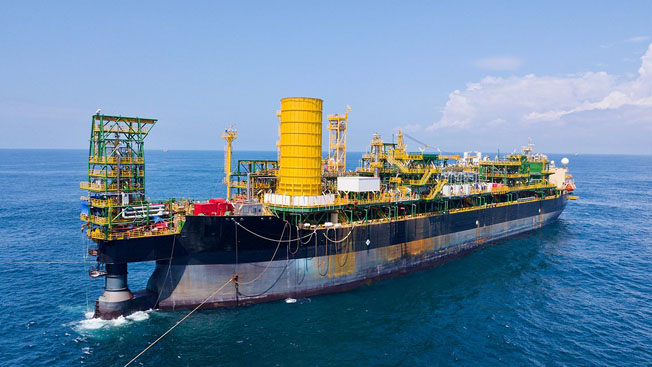Eni's Baleine is the largest hydrocarbon discovery made by an energy company in Côte d'Ivoire. Thanks to this discovery, Côte d'Ivoire is also strengthening its role as a regional energy hub for neighbouring countries. Baleine’s gas production is therefore strategic since it will increase domestic and regional supply, while oil production will be instrumental in boosting exports.
In Côte d'Ivoire, as in the rest of the African continent, Eni's business is based on these cornerstones: the path to decarbonization, the cooperation model and the operational model. In addition to strengthening and diversifying the company's traditional portfolio, which is increasingly focused on enhancing the value of natural gas, Eni promote new solutions to reduce the overall carbon footprint of their operations. Eni's goal is to make Baleine field the first net-zero (in terms of Scope 1 and 2 emissions) in Africa.
Baleine is the first net-zero upstream project (Scope 1 and 2) in Africa, a milestone made possible by advanced technologies to reduce its carbon footprint and innovative initiatives developed in close cooperation with the Ivorian government. These include a distribution program of locally produced improved cookstove, which has already benefited over 600,000 vulnerable people, and a project for the protection and restoration of 14 classified forests, contributing to the project’s overall carbon neutrality.

The Baleine model, between speed and waste minimisation
In 2021, Eni discovered an extensive oil and associated gas field 70 km off the coast of Abidjan at a depth of 1,200 metres. It was the first commercial discovery in the country in the past 20 years. Baleine, a French word translated as “balena” in Italian and “whale” in English, is being developed in record time, following an approach that characterises us. Eni call it fast track and it consists in running the design, permitting and execution phases in parallel. Another innovative aspect of the project is the re-use of existing floating units for the project’s Phase 1 and Phase 2 that have been upgraded and technologically enhanced to ensure accelerated deployment, thus optimising costs and schedules and minimising waste of raw and construction materials.
Highlights
- ~ 22,000 bbl/d equity production of oil equivalent
- 2.5 billion barrels potential of oil in place
- 100 billion/m³ associated gas since start-up
- 155 k hectares for forest conservation, restoration and management projects
With a total production of Phase 1 and 2 of more than 62,000 barrels of oil and more than 75 million cubic feet of gas per day, which is set to rise up to 150,000 barrels of oil and 200 million cubic feet per day with the start-up of Phase 3, the Baleine project is a key pillar in meeting domestic energy demand. The gas production plateau, estimated at around 12 years, ensures significant continuity over time. Indeed, 100% of the gas produced is used to supply Côte d'Ivoire's domestic market, significantly supporting the country's energy security and promoting national industrial growth.
The entire gas chain contributes to ensuring reliable, sustainable and clean access to energy, reducing dependence on imports and strengthening Côte d'Ivoire's energy autonomy. This strategic approach is part of a broader framework of sustainable development and energy transition, of which the Baleine project is a model of excellence in the African scenario, being the first net-zero emission upstream development on the continent.
Eni has been present in Côte d'Ivoire since 2015 and has made the two largest discoveries in the country, Baleine and Calao.
KeyFacts Energy: Eni Cote d'Ivoire country profile l KeyFacts Energy: Projects Database
 KEYFACT Energy
KEYFACT Energy